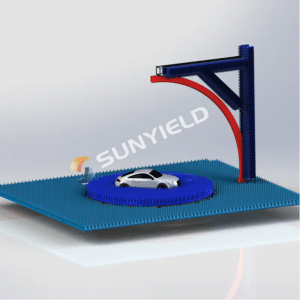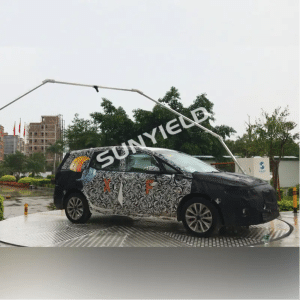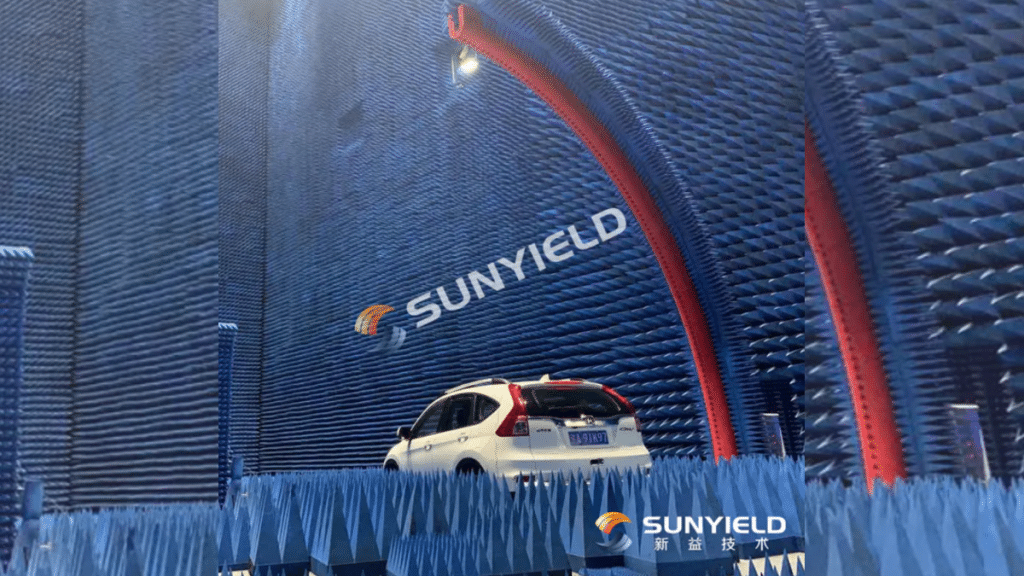Thanks to progress in driver assistance systems and autonomous driving technologies, vehicles have become sophisticated, intelligent, connected devices. Cars now provide a wide range of applications ranging from autonomous driving functions and advanced driver-assistance systems (ADAS) that help guide and monitor driving to some infotainment services. Vehicles also deliver telematics capabilities that enable remote monitoring, assistance, and data transfer between the car and other systems.
These functions all benefit from the use of vehicle antennas for wireless data exchange, facilitating autonomous driving, vehicle-to-everything communication, and navigation. As automotive design integrates more connectivity, efficient antenna performance is critical. Antenna measurement helps characterize wireless antenna performance to promote the development of communication systems that power new intelligent vehicle technologies.
What Kinds of Intelligent Connected Vehicle Tests are Needed?
Before the intelligent connected vehicles are put into use, the wireless connectivity test is necessary. Antenna testing equipment is needed to test whether these vehicles can operate normally, whether their performance is good, and whether the vehicles are safe.
Functional Testing
By measuring the radiation performance of the antenna, we can understand the signal transmission capability of the car antennas and prevent accidents caused by connection interruption during driving. Functional testing also includes autonomous driving capabilities to test whether the auto-drive system of the vehicle can accurately perceive the surrounding environment.
In addition, measuring the performance of onboard radar helps vehicles detect obstacles, thereby reducing accidents and property damage. The Internet of Vehicles (IoV) is also important. Testing the connection capabilities between the vehicle and external networks ensures that the vehicle can obtain and send data in a timely manner and interconnect with the facilities.
Performance Testing
Performance testing mainly focuses on the energy efficiency and system responsiveness of intelligent connected vehicles. By testing and optimizing the energy efficiency of vehicles, energy can be saved for car owners. The system responsiveness aims to test whether each system of the vehicle can respond quickly and accurately to external changes. For example, testing the response speed and accuracy of the car navigation system, as well as the speech recognition system’s recognition accuracy.
Security Testing
Security vulnerabilities are rigorously tested before public deployment. The security test aims to evaluate the safety performance of vehicles in various situations, including collision, emergency braking performance, the accuracy of lane-keeping assist systems, etc. Conducting various collision and safety performance tests on vehicles can ensure that they provide maximum protection and reduce injuries in the event of accidents.
Antenna Measurement – Intelligent Connected Vehicle Test Solution
Antenna measurement plays an integral role in testing intelligent connected vehicles by comprehensively evaluating wireless antenna performance. This detailed characterization helps automakers optimize key onboard systems. These include:
Vehicle Audio and Video System
Detailed radiation pattern analysis tunes antenna design, ensuring high-quality satellite radio, HD radio, and multimedia streaming reception during all driving scenarios. By accurately measuring the signal strength received and transmitted in all directions of the vehicle antenna, the transmission quality and stability of the audio and video system can be optimized, providing a better user experience.
Vehicle Communication System
Emerging connectivity standards like 4G, 5G, and vehicle-to-everything pose new wireless challenges. Robust testing evaluates technologies at the antenna level. Parameters such as coverage, transmission rate, and communication quality are critically analyzed. This evidence-based approach guides the evolution of more powerful communications, facilitating data-driven innovations.
Vehicle Navigation System
Location services form the backbone of advanced driver-assistance systems. Rigorous testing confirms GPS and other signals are received accurately for safe, reliable navigation. Automakers depend on accurate antenna evaluation, ensuring navigation systems achieve stringent performance suited for autonomous platforms.
Vehicle-Mounted Radar
Vehicle-mounted radar detects information such as the distance and speed of target objects by emitting electromagnetic waves and receiving echoes. Antenna measurement is crucial for ensuring the accuracy and reliability of radar. By accurately measuring the transmission power and reception sensitivity of the radar antenna, the performance and target detection ability of the radar can be optimized. Thus, the safety of the vehicle can be improved. Automotive radar antenna testing strengthens capabilities that enhance adaptive cruise control and eventual full self-driving functional safety.
Who Provides Intelligent Connected Vehicle Antenna Measurement?
Founded in 2011, Sunyield is a pioneer in near-field multi-probe antenna measurement technology. Over a decade, the brand has cemented its position as a leading manufacturer known for technology innovation, dedicated customer service, and comprehensive product variety catering to diverse testing needs. With R&D centers across China, the company’s team of experts holds strong expertise matched by industry experience.
Committed to quality, Sunyield passes strict certifications and upholds excellence through numerous software copyrights and registered patents. As an active member of antenna testing, two of its top offerings about vehicle antenna measurement systems include:

SY-IWM
The SY-IWM is a full-size, full-band entire vehicle antenna measurement system designed for indoor use. It provides test solutions such as single probe and multi-probe to expand the test frequency band while ensuring the test speed of common frequency bands. Its key features include:
- Single probe and multi-probe modes to suit diverse testing applications
- Easy to replace probe to achieve frequency Extension
- Frequency range from 500 KHz~up to 90GHz(AM/FM test is condition for far-field test)
- 360-degree rotation and lifting controls on the vehicle turntable can achieve precise and comprehensive measurement
- Test range: AM/FM/DVB/Wireless Communication/GNSS/Vehicle-borne Radar
- -70°~+70°singleprobe swingarm system, integrated with dual axis synchronous drive and double link switching
- Rapid deployment capability thanks to the movable cabinet
SY-OAR
SY-OAR provides an affordable outdoor solution for full-vehicle antenna testing. It combines both near and far-field capacities in one integrated system. Its key features include:
- Ideal for single-car antenna or whole-vehicle radiation performance test
- Supports a broad test range from AM/FM to Wireless Communication/GNSS/Vehicle-borne Radar
- Frequency range from 500 KHz~up to 90GHz(AM/FM test is condition for far-field test)
- One-dimensional turntable enables comprehensive upper hemisphere radiation performance test for automobile-related antenna
- Detachable probe holder facilitates quick probe replacement for frequency extension

Conclusion
Overall, as vehicles become more reliant on wireless connectivity, ensuring optimal antenna performance becomes critical. Antenna measurements offer test solutions tailored for intelligent vehicles throughout their development cycle. They help improve the efficiency and effectiveness of autonomous, telematics, and infotainment applications.
With extensive industry experience and reliable antenna testing equipment like the SY-IWM and SY-OAR, Sunyield provides comprehensive solutions to antenna assessment needs. Contact them now to learn more about its intelligent connected vehicle antenna measurement and other information!

